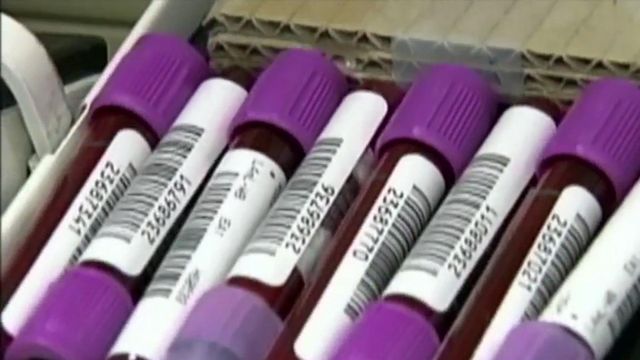Researchers reviewing results for NC's first coronavirus antibody study
A COVID-19 prevalence study funded by the General Assembly has enrolled 7,000 people and reported its first results Friday.
The study, based at Wake Forest Baptist Health in Winston-Salem, asks people to check in daily with any symptoms they may have. It's also mailing tests to determine whether people have developed antibodies to the coronavirus – a sign they've been exposed to it and may now be immune.
Researchers said that they've sent out 1,475 test kits and gotten results for 676. Antibodies were present in 2.2 percent, a result researchers said was "preliminary and should not be fully extrapolated to the broader population at this time, but certainly suggests a low seroprevalence in the Triad region."
"Seroprevalence" means how common the virus is, based on blood tests.
"This number will change as more participants are enrolled and more data come in," the group said.

The study will release results online but described the website Friday as "bare bones" for now.
Among other things, initial results are more heavily weighted toward health care workers, who have been over-sampled due to their risk for catching the virus. Also over-sampled so far, researchers said: White women.
The group hopes to widen its study, and it got $20 million from the state to do so. So far, the symptom check-ins also show low prevalence, with nearly all daily reports showing few or no symptoms.
Friday's update came from Senate President Pro Tem Phil Berger's office, which pushed for the study. But Berger's office said it was approved by the study's lead researcher, Dr. John Sanders, chief of infectious diseases at Wake Forest Baptist Health.
Several other state-sponsored studies are getting underway along these lines in North Carolina, though Wake Forest seems to be ahead of them. Researchers at Duke University, the University of North Carolina at Chapel Hill and East Carolina University are also trying to determine how many people have, or have had, COVID-19.
Coronavirus testing in NC
The N.C. Department of Health and Human Services started releasing the total number of patients tested, including those conducted by private labs and public health departments, on March 18. This figure only reflects labs that are reporting to local and state health officials. DHHS doesn't publish raw numbers detailing daily negative and positive tests from labs reporting both of these figures - just percentages. So WRAL is calculating the percentage of positive tests here cumulatively, instead of day over day, to avoid any potential skew of daily figures by either a lag in the reported number of positive/negative cases or a surge in positive cases from labs that don't report both positive and negative results. NOTE: On Aug. 12, DHHS announced a major correction to their testing numbers after discovering a discrepancy with their submissions from LabCorp dating back to April 24. The WRAL team is working to update this graphic to account for the changes, so updates have been paused until then.
Source: N.C. DHHS
Graphic: Tyler Dukes, WRAL
Each study will include blood tests, and results from the UNC study, focused on Chatham County, should have initial results in less than a month, state Department of Health and Human Services spokeswoman Kelly Haight Connor said. The first surveys were expected to go out this week, she said.
Among other things, prevalence data, including among people who never seek treatment, may change death rates for the virus and yield clues about long-term immunity. Researchers also hope to track changes in infection rates as social distancing restrictions lessen.
A single study won't answer these questions, but together they "will be able to give a picture of what's going on all across the state," said Dr. Kristin Newby, who is working on a study at Duke.
Newby's study will focus on Cabarrus County. ECU will target Pitt County, and Haight Connor said some of the focus will be on Veterans Health Administration patients, pregnant women, health care workers and other high-risk groups.
Newby said she hopes to see results out of Cabarrus County by the end of May or beginning of June.
"Once we get up and going, we will effectively be collecting information in real time," she said.
Wake Forest researchers hope to get federal funding and eventually collaborate with the University of Maryland, MedStar in Washington, D.C., Tulane University in New Orleans and the University of Mississippi, in part to bring in a more diverse population for testing. They also expect to add other North Carolina hospital networks and to focus on manufacturing facilities to better contain outbreaks among workers.
They also hope, Berger's office said Friday, to let any member of the public enroll through the study's website, but that feature isn't ready yet.











